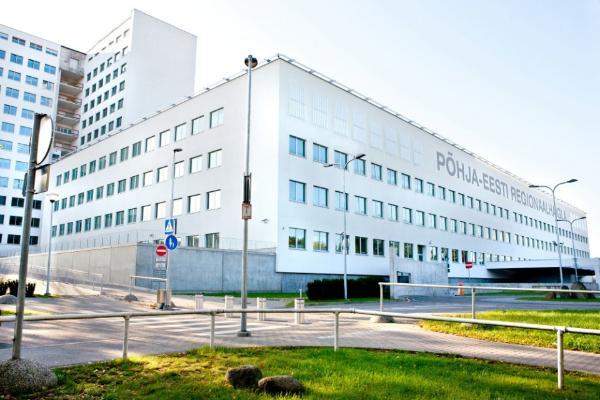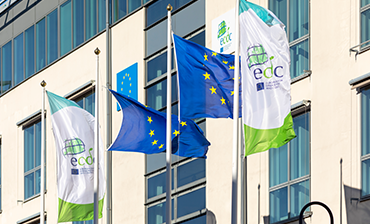Remarks by President Charles Michel after the EU-Japan Leaders' meeting

First of all, I would like to thank the Prime Minister of Japan for this very productive meeting and for this very positive video conference.
Our meeting sends two important messages: first the Eu-Japan partnership is very strong and vibrant. And second, we are working very hard together in order to face this COVID-19 crisis.
We share with Japan the same values: multilateralism, rule of law, democracy and the conviction that global challenges require global answers.
The first topic we addressed today is COVID-19. We have taken the decision to continue to work together in order to develop vaccines, and we consider that COVID-19 vaccines have to become common goods and affordable for everybody everywhere. We have also had the occasion to welcome the generous contribution of Japan in the framework of this European initiative, this pledging conference, in order to mobilise a huge amount to support research.
We also had the occasion to consider that we will need to work together in order to reform some international organisations. WHO is an important multilateral organisation, and we consider that it is important to make an evaluation and to see how it is possible to learn some lessons in the future.
Un autre point important qui a été abordé dans cette vidéo conférence est la mobilisation très forte du Japon et de l’Union européenne sur la scène internationale en faveur d’une stratégie solide, ambitieuse et rapide pour la relance économique sur le plan international et sur le plan mondial. Nous avons l’intention d’y travailler ensemble, notamment dans le cadre du G7 qui devra se tenir dans quelques semaines. Nous avons l’intention aussi de veiller à ce que le libre échange, basé sur la réciprocité, basé sur les principes de level playing field, basé aussi, selon l’Union européenne, sur l’importance de considérer l’enjeu climatique, doit être une force motrice pour réussir une stratégie de relance économique sur le plan international tout en développant, nous l’avons déjà exprimé à plusieurs reprises, cette ambition de renforcer l’autonomie stratégique de l’Union européenne. Et autant la capacité de l’Union européenne de diversifier son accès aux chaînes de valeur et de faire en sorte qu’il y ait cette capacité pour l’Union d’agir de manière davantage autonome. Il est important de souligner aussi que le lien entre le Japon et l’Union européenne est un lien qui est très significatif sur le plan économique, puisqu’il représente un tiers de l’économie mondiale. Nous avons eu l’occasion d’affirmer sur le plan bilatéral, la volonté de renforcer des coopérations de manière très opérationnelle dans différents domaines. Il en va du changement climatique en passant par la recherche, mais également l’ambition de considérer le Green Deal et l’Agenda Digital comme étant des leviers pour renforcer nos coopérations à l’avenir.
Another important topic that you have addressed this morning is the geopolitical topic. We are convinced that this COVID-19 crisis will have huge economic effects, but not only economic effects. We are also convinced that this crisis will have some geopolitical effects, and it is why it is essential for Japan and the European Union to work together to face some challenges, especially to be very committed to peace, security and stability. And we have seen, especially in recent weeks, the very negative effects of some disinformation strategies and some disinformation campaigns. We need to work more together in favour of more transparent information. We need more cooperation and this is a key topic, in our opinion, because the strength of democratic societies is based on reliable information and transparent information. That’s why it is essential to protect and to promote our strong European values, our strong democratic values to be more committed in the future with all our partners to contain the negative effects of disinformation campaigns.
Nous avons eu aussi l’occasion d’aborder un point qui nous tient à coeur et qui me tient à coeur personnellement sur le plan de l’ambition que nous avons pour l’avenir: la relation avec les pays plus vulnérables, les pays en développement, notamment les pays africains. Et dans ce cadre-là, j’ai eu l’occasion de souligner le fait que nous saluons les premiers pas qui ont été accomplis pour ouvrir le débat sur la question des dettes vis-à-vis de pays en développement, notamment des pays africains. Je souhaite que dans le cadre du G7 qui se tiendra dans quelques semaines, ce point de la question des dettes liées aux pays en développement et aux pays africains puisse être un point abordé dans une stratégie de relance parce qu’il y a là un sujet extrêmement essentiel, si l’on veut pouvoir progresser sur le terrain du développement. Cela signifiera qu’on devra aborder cette question dans le cadre multilatéral avec l’ensemble des partenaires qui sont concernés par ce sujet-là. Nous avons eu l’occasion de développer ce point pour tenter de coopérer davantage aussi ensemble sur ce sujet.
La préparation du sommet du G7 va nous mobiliser dans les quelques semaines qui viennent. Bien sûr, avec les pays membres de l’Union européenne qui sont également membres du G7, nous allons tenter de coordonner nos positions, de coordonner nos efforts.
Cette réunion du G7 dans quelques semaines est une réunion très essentielle parce qu’elle doit être l’occasion, selon nous, d’envoyer un signal très clair et très fort sur une ambition commune, sur l’unité de ce groupe du G7 pour réussir une stratégie économique de relance. Une stratégie très forte aussi, pour lutter contre la désinformation qui vise à miner les fondements des sociétés démocratiques, doit nous permettre aussi de progresser afin d’avoir une approche commune sur le terrain des vaccins liés au COVID-19. Faire en sorte que ce vaccin soit considéré comme un bien commun, un bien commun qu’il puisse donc être accessible partout dans le monde à un prix abordable, raison pour laquelle nous sommes très engagés sur le sujet afin que cette réunion puisse donner lieu à des résultats, qu’il y ait des avancées qui soient significatives sur le sujet.
Voilà les quelques éléments que je voulais partager à l’issue de cette réunion par vidéo conférence avec le premier ministre du Japon.

